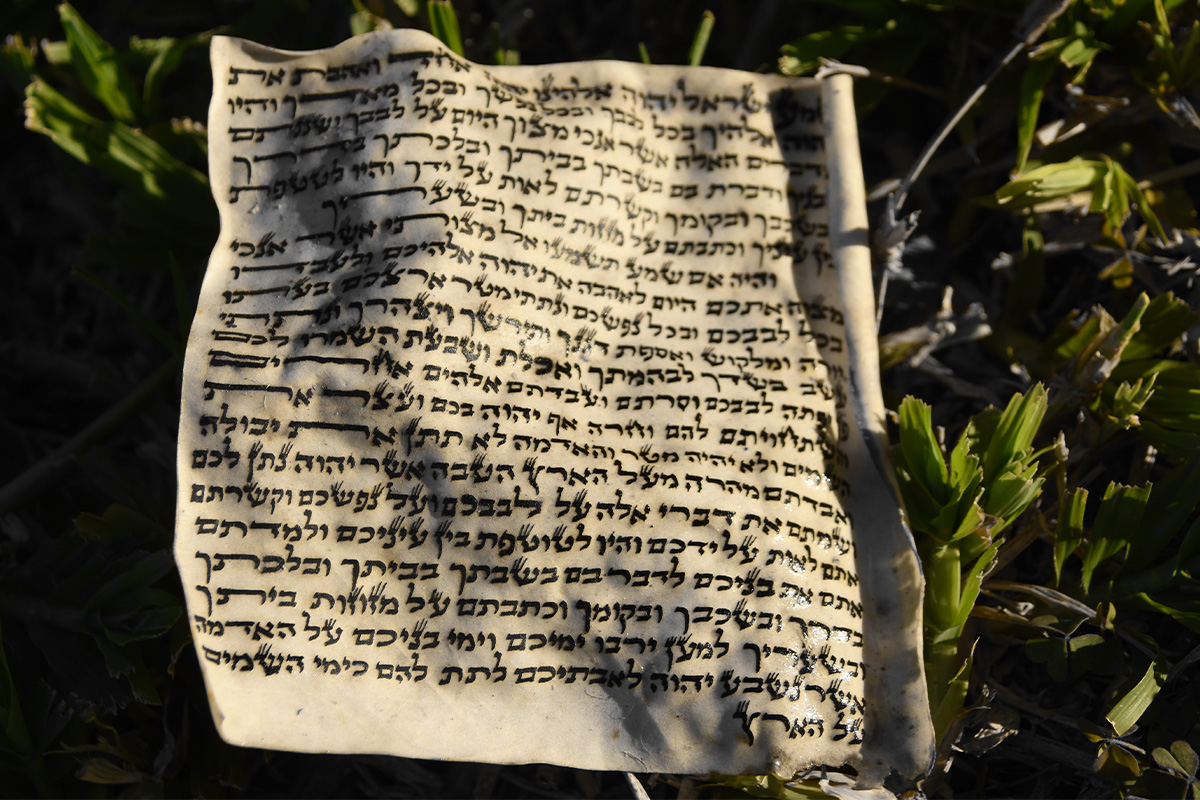The summer I turned 7, after my family and I returned from a month visiting relatives in Israel, my dad gathered us around my bedroom door, slapped a kippah on my baby brother’s head and excitedly announced that it was time for us to do a mitzvah.
We had moved into a new house a year prior, but in all the chaos of moving and my little siblings being born, we had never gotten around to hanging a mezuzah on any of the interior doors. I had picked the decorative case from a Judaica store when we were in Israel, so I was incredibly excited to finally put it on my door where it belonged. We said the prayer, I held the mezuzah at a height I could reach and my dad hammered it in place.
Twenty years later and that mezuzah is still hanging in the same spot on the doorpost of my childhood bedroom-turned-guest-room-slash-office. I’ve lived in over half a dozen places since that one, but up until a few days ago, that bedroom was the last one with a mezuzah. Living in dorms and off-campus apartments in college, it never crossed my mind to hang one; these living arrangements were transient, often lasting less than a year, so why bother putting down roots in that manner? When I graduated college and moved into my first grown-up apartment, I intermittently remembered that I wanted to hang one, even going so far as to check out what I could find online, before inevitably getting overwhelmed by all the options for pretty cases and putting it off for another day.
This past month, as news outlets and social media were awash with reports of the newest flavor of antisemitism making its rounds, I felt the push to finally, actually, hang a mezuzah. The luck of good timing meant that I was visiting my parents, so I was able to find a spare klaf and case to bring back with me to my apartment. When I got back home, I found two nails, said the blessing to myself, hammered the mezuzah in place and sent a selfie to my family group chat.
Any time there’s a surge in antisemitism, I feel the need to take up space. I want to make myself and my Jewishness more visible, as if to say, “Hey asshole, I see what you’re trying to do and I want you to know that it’s not gonna work. My ancestors may have had to hide their identity to stay safe, but I’ll be damned if I have to do the same.” Maybe it’s an act of defiance, maybe it’s just plain stubbornness, but either way it’s become my way of dealing with the vitriol thrown at our community.
It’s been less than 48 hours since I hung it, but I’ve already kissed this mezuzah more times than I have kissed any other mezuzah in at least the past five years. Like the text within it says, the mezuzah is serving as a reminder: a reminder to myself about the love I have for this community and the covenant that I share with Am Yisrael, the Jewish people. Having this visible reminder in a house where I am the only Jew makes me feel connected to my heritage in a way I wasn’t expecting. While hanging a mezuzah is such a seemingly small action (start to finish the entire process lasted about 5 minutes), it feels symbolic.
When I think about it, this is the first mitzvah I’m performing for no one other than myself. No one but me is benefitting from my hanging a mezuzah on my bedroom door, and if I hadn’t mentioned it to my family (or wrote an entire article about it), no one but my non-Jewish roommates would have even noticed that I did it.
Being a 20-something and living on my own makes my connection to Judaism at times feel fuzzy. So much of our culture and observances lie in community, and what does community mean when no one around you shares your traditions? For me, my Jewish practice as an adult became so tied up with going back to my childhood home. Living on my own, away from the synagogue I grew up in and with so few Jewish peers near me, it often felt that my only options for Jewish holidays were to go visit family, FaceTime in for celebrations or just not observe the holiday at all. There are no longer any external forces pushing me towards maintaining these traditions. I’m on my own, and whether or not I stay connected to my heritage is almost entirely in my hands.
This mezuzah is hopefully the start of me forging my own relationship with Judaism.



